Israel expands ground invasion of southern Lebanon and says assassinated Hezbollah leader’s successor killed
Israel intensifies airstrikes that have already killed 1,400 people in the past fortnight – among them, Hashem Safieddine, claims Israeli PM Benjamin Netanyahu
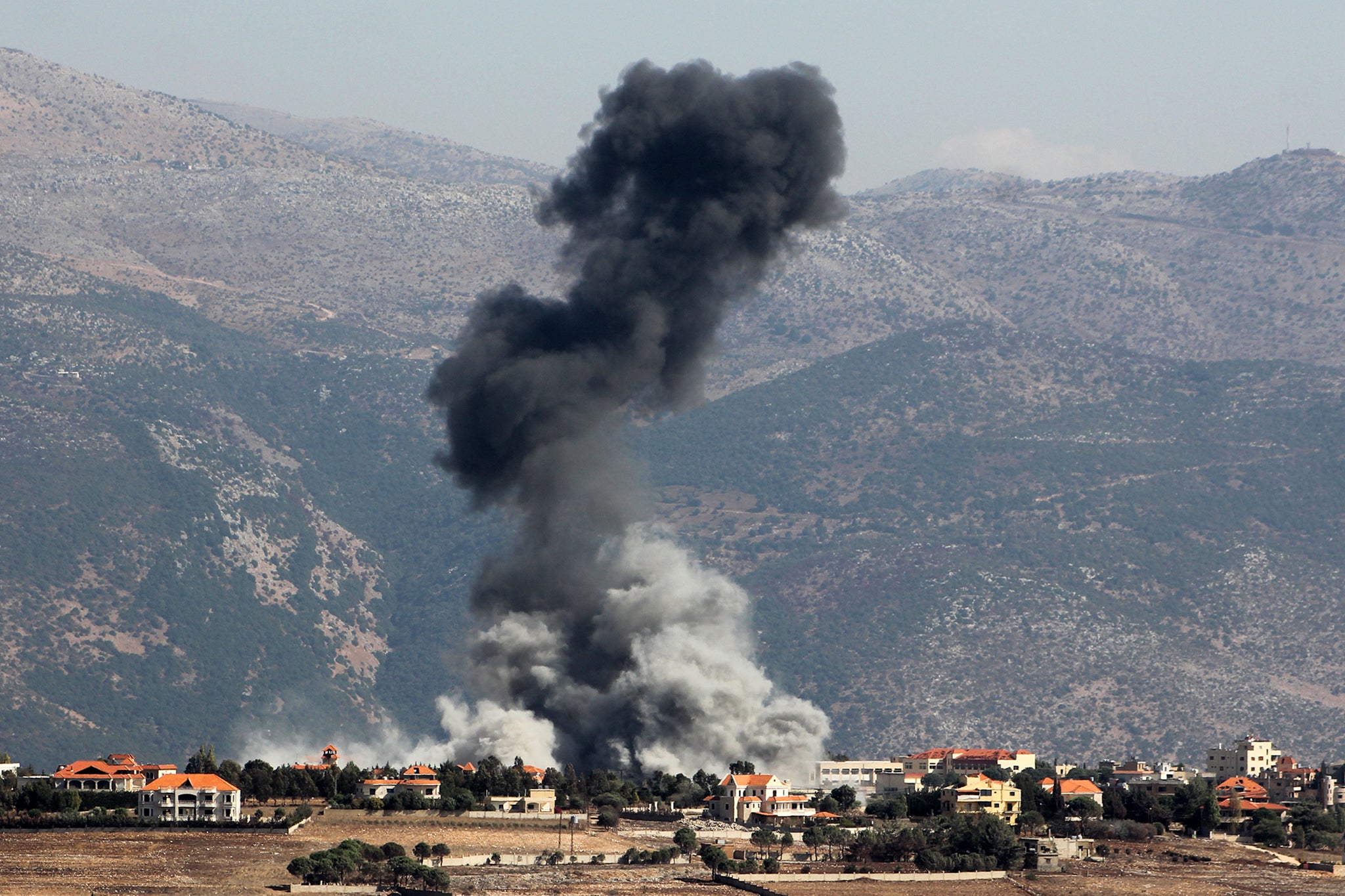
Israel has expanded its ground invasion of southern Lebanon by deploying another division of thousands of troops.
The Israeli military said a fourth division had joined the eight-day-old ground operation against Hezbollah, while the country’s prime minister, Benjamin Netanyahu, said the would-be successor to the Iran-backed group’s assassinated leader had also been killed.
Hashem Safieddine, a top Hezbollah official, was widely expected to succeed Nasrallah. Safieddine has not been heard from publicly since an Israeli airstrike late last week. He has been a prime target for Israel, nurtured as an influential leader and potential heir. As head of Hezbollah’s executive council, he has overseen the group’s political affairs, while also sitting on the Jihad council, which manages its military operations.
Mr Netanyahu claimed that Hezbollah is “now weaker than it has been for many many years”.
Israel’s defence minister, Yoav Gallant, told officers at the Israeli military’s northern command centre earlier in the day: “Hezbollah is an organisation without a head. Nasrallah was eliminated, his replacement was probably also eliminated.”
Mr Netanyahu spoke hours after Nasrallah’s former deputy, Naim Qassem, insisted the Iran-backed group had overcome the recent “painful blows” from Israel, with a number of senior commanders killed in strikes in Beirut, and that its capabilities were “fine”.
The Israeli military also said it had dismantled a Hezbollah underground tunnel that crossed approximately 10 metres from the Marwahin area in Lebanon into Israeli territory. “It did not have an exit point yet. We understand it was in the process of being built, to be ready to invade Israel,” a spokesperson said.
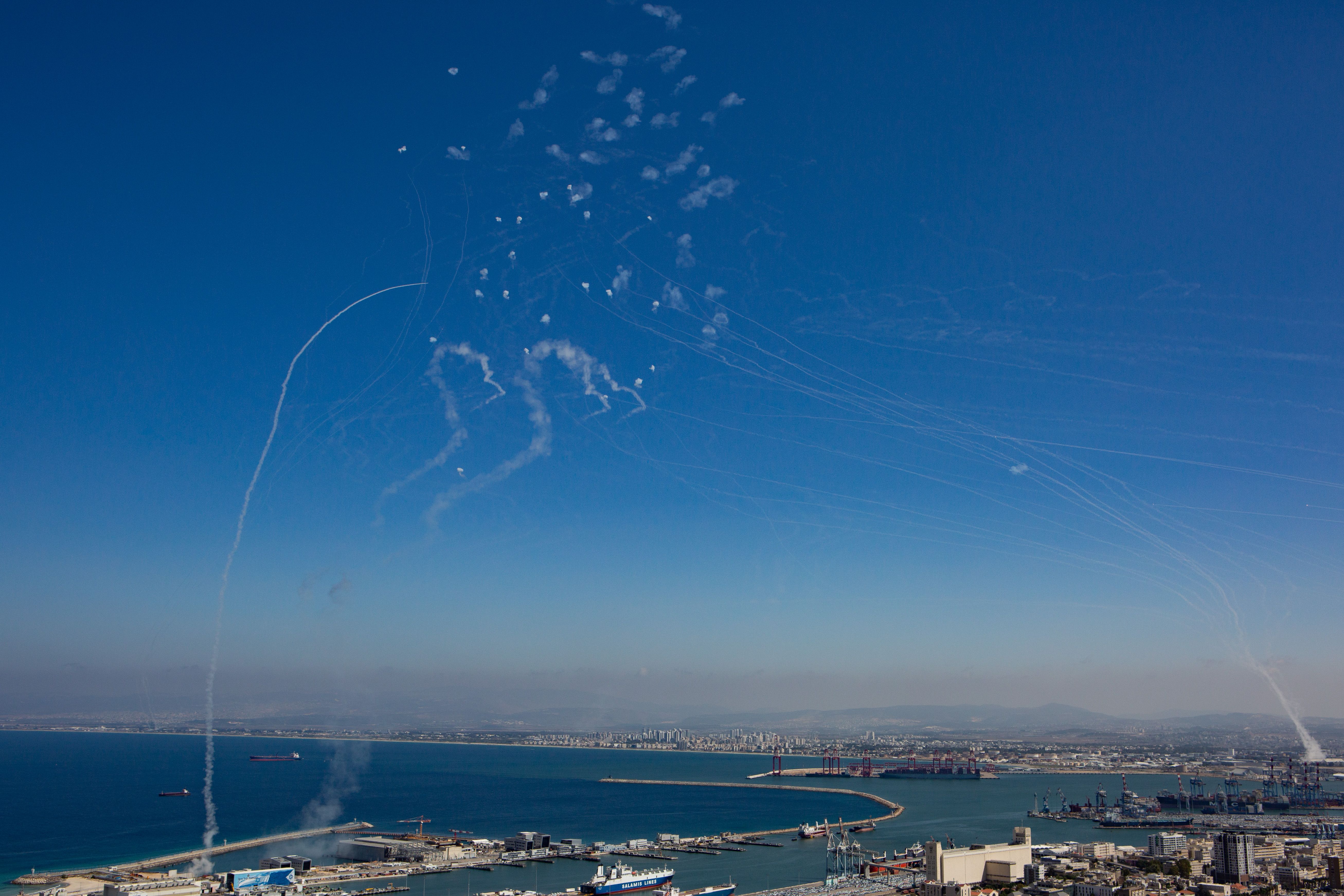
The Israeli military also said on Tuesday that it had killed Suhail Husseini, responsible for overseeing Hezbollah logistics, budget and management, the night before.
Hezbollah launched barrages of rockets towards the northern Israeli port city of Haifa on Tuesday, more than 100, for the third consecutive day, injuring 12 people.
“We are firing hundreds of rockets and dozens of drones. A large number of settlements and cities are under fire,” Qassem said in his video address, speaking from an undisclosed location. “Our capabilities are fine and our fighters are deployed along the front lines.”
Hezbollah and Israel started trading near-daily cross-border fire in the wake of Israel launching its war in Gaza in retaliation for the 7 October attack on Israel by Hamas, in which around 1,200 people were killed and 251 taken hostage.
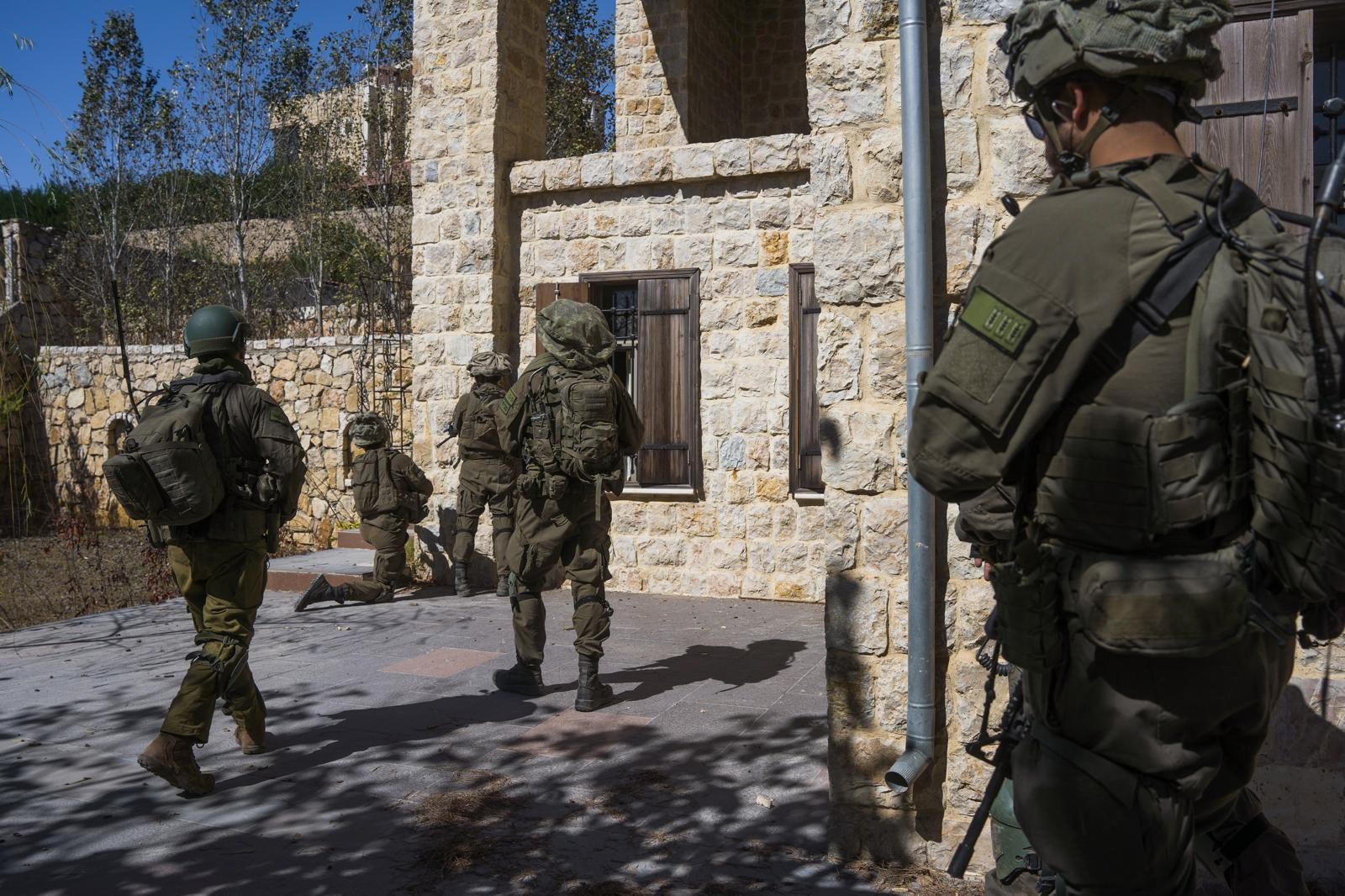
Israel’s retaliatory air and ground assault in Gaza has killed at least 41,800 people, according to the latest update from the health ministry in Gaza, and has led to more than 90 per cent of the territory’s population being displaced.
Iran’s allies in its so-called “axis of resistance” – Hezbollah, Hamas, Yemen’s Houthis, and armed groups in Iraq – have carried out attacks in the region in support of the Palestinians in Gaza.
Israel has inflicted a wave of airstrikes against Hezbollah in recent weeks and says it will keep fighting until tens of thousands of displaced Israeli citizens can return to their homes in the north after being evacuated thanks to the cross-border fire.
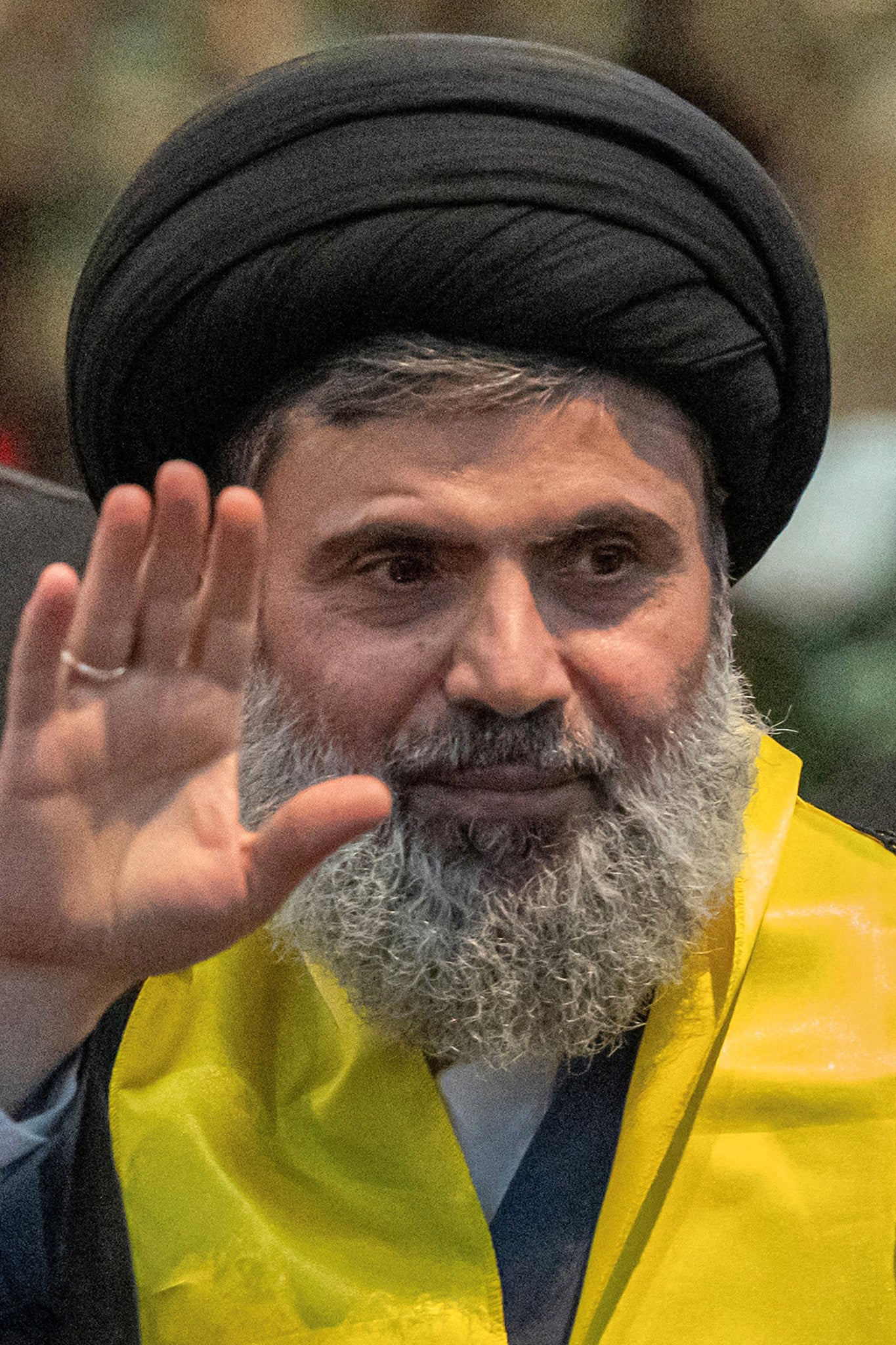
More than 1,400 people have been killed in Lebanon and at least 1.2 million displaced since the fighting escalated in mid-September. More than 2,000 people have died in the country since the 7 October attack
The conflict in Lebanon has had a punishing effect on an economy already on its knees. Wheat producers are not sure they can start planting soon, with that work supposed to begin in a month. The Beirut Port Authority says that before the airstrikes started on 23 September, operations were down 15 per cent. That number is now 30 per cent.
Hundreds of thousands have also been left with nowhere to go. In downtown Beirut, a formerly abandoned shopping centre has since last week been turned into a shelter. The Azarieh commercial centre now houses hundreds of refugees from southern Lebanon, southern Beirut and the northeastern Bekaa Valley.
Reda Mroueh says he fled southern Lebanon three weeks ago, around the time of the pager attacks that killed dozens and wounded thousands of people, among them many Hezbollah members. “I just learnt that my barber shop in the south is in ruins because of the bombardments.”
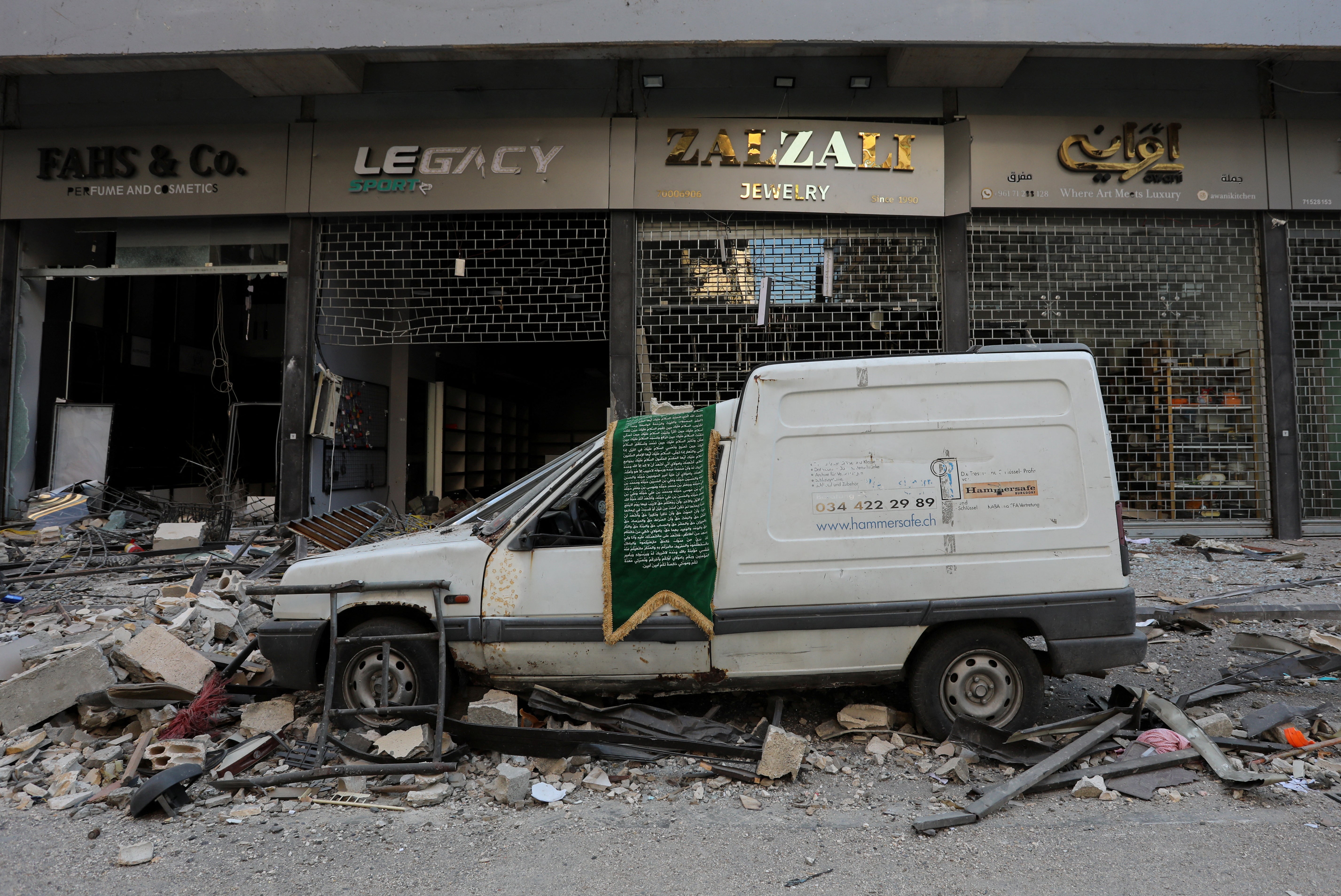
Now Mr Mroueh lives next to the southern suburbs of Beirut. “I visit schools that turned into shelters and when I have [cut the hair of] everyone, I move to the next location. By now I have seen over a thousand people already. I started out by myself for the first days. When I started posting about it on Instagram, the team grew. Now, we have 19 barber shops. But we face difficulties because transport is becoming too expensive, and we need more tools to do our work.”
Mroueh is worried about Israel’s expanding operations in southern Lebanon. “But my feeling is that they will have a difficult time. All I know is that they lost the war in 2006.”
A young woman, Noureen, said she has been here at the Azarieh shelter for three days with her two small children and husband after evacuating the southern suburbs of Beirut. “In Beirut, we’ve had to flee three times due to all the bombings. The kids are traumatised now.”
Noureen and her family are staying in one of the empty offices in the shopping centre, but have barely the essentials needed to make it habitable. “We don’t have enough clothes for the winter, and the space does not have carpets. And now winter is coming.”
Join our commenting forum
Join thought-provoking conversations, follow other Independent readers and see their replies
Comments
Bookmark popover
Removed from bookmarks